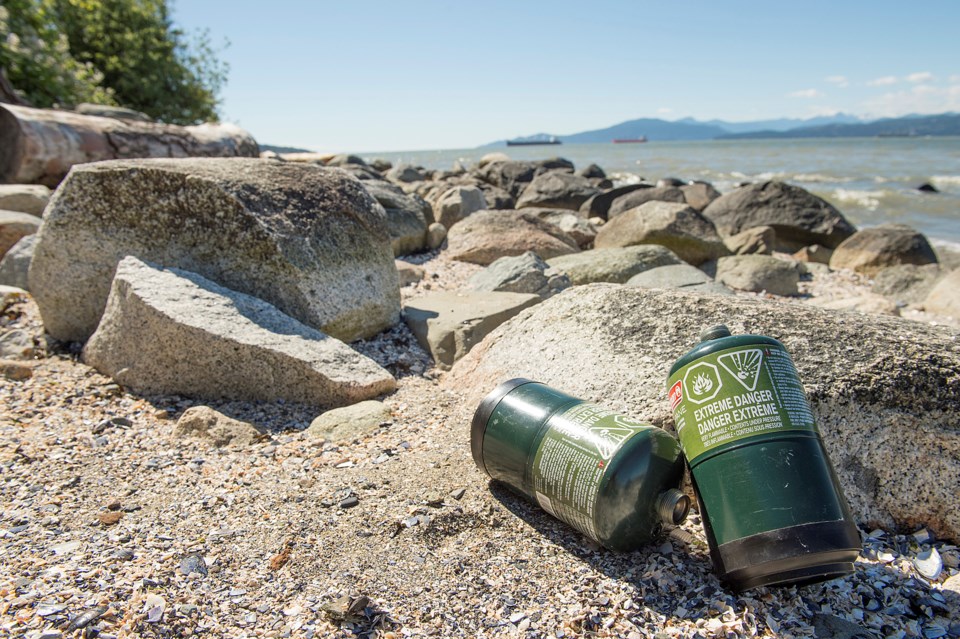A seasonal recycling dilemma is about to perpetually play out in back lanes, dumpsters and campsites across B.C.
The issue at hand relates to disposable, one-time use propane canisters that are routinely and improperly discarded into the waste stream, leaving sanitation workers at risk and campsites littered.
“For us, this is an operational challenge,” said Allen Langdon, managing director of Recycle BC. “We’re worried about worker safety, which we take seriously. But it’s also just a matter of managing this hazardous waste. It doesn’t have a home right now and there are certainly not enough places out there available to manage it.”
Formerly known as Multi-Material BC, Recycle BC is the body tasked with running the blue box recycling program across the province. Propane canisters are not permitted into blue boxes and recycling officials are waiting on the province to enact programs to deal with the ubiquitous barbecue mainstay.
There are only five locations in Metro Vancouver that accept disposable propane canisters. The lone facility in Vancouver is the transfer station on Kent Avenue in South Van. The other four are located in Surrey, North Vancouver, Port Coquitlam and Delta.
Four canisters can be dropped off daily at the Kent Avenue facility for free.
Smithrite is the company in charge of handling blue box pick-up in Vancouver, and Langdon said company employees are instructed to not pick up the canisters in question. In some instances, they are thrown into dumpsters, creating massive safety hazards on board Smithrite vehicles or at recycling facilities.
Because trace amounts of propane remain in the canisters after they’re not in use, the potential for fire and explosions can occur. That volatile mix of fuel and paper has resulted in small fires at regional recycling facilities in the past, according to Langdon.
“It’s going to come down to the province to do anything about this,” Langdon said.
Representatives with the Recycling Council of B.C. (RCBC) were hopeful an answer would have been found before the current onset of summer. RCBC information services manager Harvinder Aujala said one potential solution could include a model where consumers are charged an environmental handling fee for the canisters, which would then help subsidize more locations where they could be recycled.
“They are so ubiquitous and you can buy them anywhere… it doesn’t matter what retailer I go to I can purchase them, but then essentially you’re giving people one option for recycling them,”Aujula said. “That’s why RCBC would love to see them be a part of a provincial program.”
Ontario has a program in place at some parks where cages are set up for canister drop off. Stewardship groups then collect the canisters and take them to the appropriate recycling locations.
More than 100,000 kilograms worth of propane cylinders were collected from those parks in 2011, representing 32 per cent of all the non-refillable pressurized containers collected that year.
The issue of limiting one-time use items went before council June 27 to support the city’s goal of becoming the greenest city on earth by 2020. A city-wide survey will be released in September to gauge ideas and solutions around those efforts.
@JohnKurucz



